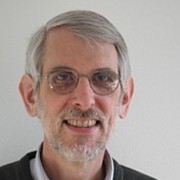My path into medicine and cultural psychiatry may perhaps be described best as unlikely. I was an undergraduate at the University of Pennsylvania, during an era when ‘a liberal arts education’ was still regarded as a good idea, and as I reached my senior year, a well-marked career path seemed out of reach. Pushed by my family toward a career in medicine, I knew that I wanted something different from working as the kind of doctor I knew from my middle-class upbringing. It seemed more technical than scientific, and more a path of least resistance than a real career choice.
Dropping out of organic chemistry would, I thought, put an end to any further consideration of medical school. During my undergraduate years from 1965 to 1969, I studied physics and planned to become a scientist. I also became very interested in music, particularly jazz, folk music, and Indian music, and I worked in radio at the University station, which served the Philadelphia area. There I organized the jazz programming, which became popular, and worked as a disk jockey; playing records and interviewing musicians who came to perform in the city.
Motivated by the mix of styles and cultures of these music interests, the city, and the university, I had become acquainted with the South Asia Studies Center at University of Pennsylvania, which was the first of its kind in the country. I took as many courses as I could in the culture and history of India and the region. I also studied Indian music and the sitar and established a radio programme of Indian music. When I completed my undergraduate training, I had second thoughts about graduate school in physics and decided against it. I continued working in radio, first in Philadelphia and then in New York, before returning to the University of Pennsylvania as a graduate student in South Asia Studies.
Penn was an exciting place to study South Asia. The program brought together a mix of specialists in fields of philology, anthropology, literature, art, music, politics, economics and more. After taking basic courses in modern and classical languages (Hindi and Sanskrit), and with initial exposure to classical traditions of Indian medicine through a visiting professor at Penn, A. L. Basham, my interests and thesis topic shifted to questions of health, psychology, and psychiatry. I chose a dissertation topic that brought together my previously suppressed interests in medicine, along with science and culture, in a study of concepts of serious mental disorder (unmda), as formulated in the traditional medical system of India, Ayurveda.
In addition to the philological and cultural aspects of my thesis work, which were supervised by Ludo Rocher and involved translating relevant chapters of the texts, I was also guided by Edward Foulks, a psychiatrist and anthropologist, who was actively contributing to the emerging field of cultural psychiatry. Combining the interests of academics and the relevance of clinical practice, Foulks’ work made it clear that medical studies could be far more interesting and fulfilling than I had previously imagined. His enthusiasm for the topic suggested fascinating possibilities that I wanted to pursue. Perhaps, I thought, if it was possible for me to follow his example, this would focus my liberal arts experience on a career path that I wanted to follow. I then took the required premedical courses while completing my PhD at Penn, so that I could go to medical school, train in psychiatry, and develop a career that integrated my interests in South Asian culture, medicine, and psychiatry.
After medical training and field experience in India, where I established contacts with clinicians and scholars working in the traditional medical system of Ayurveda, and with colleagues in psychiatry departments of medical centers, I started residency training in psychiatry at the Cambridge Hospital (Harvard University) in 1981. Arthur Kleinman, already a leader in the field at that time, was just returning to Harvard, and I was fortunate to be able to study with him as a teacher and mentor, who encouraged me and helped me further shape and advance my career plans. With a focus on cultural psychiatry Kleinman brought to the Cambridge program, the medical anthropology training program that he was developing in the University, and links to the School of Public Health, this was a very stimulating place to be for anyone interested in cultural psychiatry.
An NIMH career development award in 1987 enabled me to study medical anthropology and public health, and to arrange extended periods of field research in India. During that time, I developed collaborative research links that have continued over several decades. My clinical base remained at the Cambridge Hospital, and I also worked on an inpatient ward at the Metropolitan State Hospital. My academic base was the Department of Social Medicine at Harvard Medical School, where the guidance of Leon Eisenberg was an important influence. I benefited from the medical anthropology program in that department, that Byron and Mary Jo Good had developed with Arthur Kleinman.
My extended periods in India, arranged during and after my psychiatry residency, were especially important in shaping current interests in cultural epidemiology as an approach to cultural research in psychiatry and other health studies. My collaborations there were in diverse hospital and community settings throughout the country, in and near Mumbai, Bangalore, Varanasi, Ranchi, Kolkata, and Pune. Experience with many colleagues from these sites helped both to apply and rethink Arthur Kleinman’s formulation of the ‘explanatory model’, which had been an important influence on clinical and research models when I was training.
In 1992, I joined the Culture, Community, and Health Studies Program, headed by Morley Beiser, at the University of Toronto. I had met him while serving on the advisory group to the DSM-IV Task Force for culture and diagnosis, which produced the cultural formulation. In addition to my work with the diverse community of Toronto, my international research began to extend to interests beyond clinical psychiatry. These included cultural features and the emotional impact of selected tropical diseases, with new collaborations in several African countries and new activities in India. These collaborations through the WHO Special Programme for Research and Training in Tropical Diseases also brought me into contact with colleagues involved more exclusively in questions of international health. In much of this work, stigma and gender remain cross-cutting topics of interest.
It is from research in cultural psychiatry that the concepts and methods of cultural epidemiology have emerged, and cultural psychiatry remains a major interest. Interdisciplinary linkages between psychiatry and tropical infectious diseases, and between clinical and population-based interests have developed from that, as the focus of my current research and teaching.
Since joining the Swiss Tropical Institute in Basel, in 1995, where I head the Department of Public Health and Epidemiology, my research in cultural psychiatry continues to examine questions of clinical and community mental health through collaborations in India. These include a rural mental health program in the Sundarban region of West Bengal, working with Prof A. N. Chowdhury, and an urban community mental health programme in Mumbai, working with Prof S. R. Parkar.
The social and cultural contexts of suicidal behavior are important themes in these Indian studies, complemented by comparable studies in Europe, including an ongoing study of the cultural epidemiology of suicidal behavior in Basel. This work is concerned with suicide prevention and with identifying local patterns of distress that define priorities for mental health from local community perspectives, which complement professional concepts of DSM and ICD disorders. The concepts and methods of cultural epidemiology that we have developed to advance these studies, and training materials that my research group and collaborators are also developing, aim to advance research and research capacity in cultural psychiatry. This work also indicates how experience with cultural psychiatry contributes to cultural studies of other aspects of clinical and public health research.
April 5, 2006

